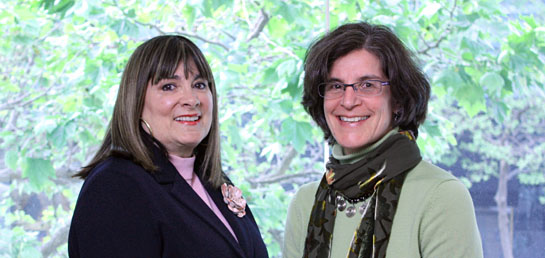A three-year $10.5 million federal grant awarded in December to help speed up mental health research will rely heavily on data from members of six Kaiser Permanente regions, including Kaiser Permanente Northern California.
The Mental Health Research Network, to be funded by a grant from the National Institute of Mental Health, will have access to data from about 10 million people in 10 health care systems across 12 states.
This includes 8 million Kaiser Permanente members, 3 million in Northern California alone. Other participating Kaiser Permanente regions include:
- Southern California
- Colorado
- Georgia
- Northwest (Oregon and Washington)
- Hawaii.
The network will leverage medical information from the HMO Research Network to help researchers do faster comparative effectiveness mental health research. This in turn will lead to faster dissemination of useful treatment options.
Enid Hunkeler, MA, a senior scientist at the Division of Research at Kaiser Permanente Northern California, will lead the network’s Northern California research efforts as its principal investigator. Outside Kaiser Permanente, other participating health care system investigators are affiliated with the:
- Group Health Research Institute in Seattle
- HealthPartners Research Foundation at Health Partners in Minneapolis
- Department of Population Medicine at Harvard Pilgrim Health Care in Boston
- Center for Health Services Research at Henry Ford Health System in Detroit.
“Mental health disorders such as autism, depression and suicide affect people of all ages, ethnic groups and socioeconomic status,” said Hunkeler. “Research to find the best approach to identify, treat and prevent these and other mental health conditions requires large studies on diverse populations.”
Gregory E. Simon, MD, MPH, of Group Health, will lead the network. Also on his executive committee are Hunkeler and Leif Solberg, MD, of HealthPartners.
Autism registry is Division’s first network project
Four network research projects already in the works will be completed with funding from this grant. One of the four, developing a registry of autism patient families, will be led by the Division, with senior scientist Lisa Croen, PhD, as the project’s principal investigator.
The autism registry, to include participants from five of the 10 centers, will be designed to prescreen patients for research projects. Patient families agreeing to take part will also be asked to contribute useful-to-research biospecimens, such as blood, from which DNA can be extracted.
“This 10-center network is an essential resource for advancing these large, important studies,” said Dr. Croen, director of the Division’s Autism Research Program.
Other research projects underway include:
- An investigation of psychotherapy for depressed mothers, led by Kaiser Permanente Colorado
- Comparative effectiveness research on treatments for bipolar disorder and depression, led by Group Health
- A study of how FDA anti-depressant safety warnings affect prescription patterns and suicide attempts, led by Harvard Pilgrim.
Some network funding comes from the 2009 federal stimulus package, more formally known as the American Recovery and Reinvestment Act of 2009.





Comments (0)